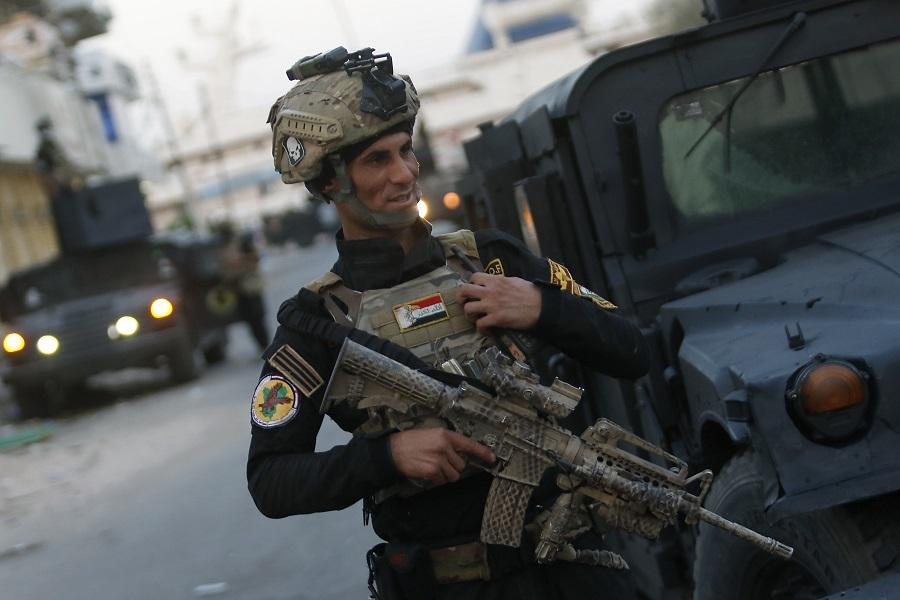Hezbollah chief warns Israel against continuing strikes in Syria
BEIRUT: The chief of Lebanon’s Hezbollah movement has warned Israel against continuing strikes in Syria targeting mainly Iranian positions, saying it could fuel war in the region.
Israel’s army has since 2013 claimed hundreds of attacks on what it says are Iranian military targets and arms deliveries to Tehran-backed Hezbollah, with the goal of stopping its main enemy Iran from entrenching itself militarily in neighboring Syria.
In the latest strikes nearly a week ago 21 people were killed, the majority of them Iranians, according to the Britain-based Syrian Observatory for Human Rights monitor.
Addressing Israeli Prime Minister Benjamin Netanyahu directly, Hassan Nasrallah said Saturday in an interview with Al-Mayadeen television: “Don’t make an error of judgment and don’t lead the region toward war or a major clash.”
“At any moment the Syrian leadership and the axis of resistance can take a decision to deal with the Israeli aggression in a different manner,” he said, referring to the alliance between Syrian President Bashar Assad’s government, Iran and its ally Hezbollah.
When asked whether a retaliation could take the form of air strikes on Tel Aviv, Nasrallah said “anything is possible,” adding that Hezbollah possessed “high-precision missiles” capable of hitting anywhere in Israel.
The Israeli army announced the strikes against facilities it said belonged to the Iranian Revolutionary Guards’ Quds Force on Monday as they were occurring.
It said they were in response to a medium-range missile the Quds Force fired from Syria at the Israeli-occupied Golan Heights on Sunday, which Israeli air defenses intercepted.
Israel has caried out hundreds of air strikes in Syria and its warplanes have been targeted by anti-aircraft fire during such raids, but it has rarely faced surface-to-surface missile fire in response.
Israel has warned it will continue to target positions in Syria held by Iran and its ally Hezbollah.
Netanyahu and other Israeli officials have been speaking more openly about the country’s strikes in Syria in recent days, which some analysts partly attribute to the premier wanting to burnish his security credentials ahead of April 9 elections.
Others say it carries a strategic military purpose as well by sending a stronger message.
But Israel also risks an escalation with Syria and Iran, as well as possibly further angering Russia at a time when the United States is seeking to withdraw its forces from Syria.
In Saturday’s rare television interview — which was more than three hours long — Nasrallah also said that Israel took “years” to discover cross-border tunnels from Lebanon.
“The Israelis discovered a number of tunnels after many years, and it’s not a surprise, the surprise is that these tunnels, they took some time to find,” he said.
Earlier this month Israel concluded an operation to unearth and destroy tunnels which the army accused Hezbollah of digging across the border from Lebanon.
“Yes, there are tunnels in southern Lebanon,” Nasrallah said, in his first comments on the issue since Israel announced the operation on December 4.
The Hezbollah leader refused to specify whether they were built before the 2006 war between the militia group and Israel, or who had constructed them.
The month-long war killed more than 1,200 Lebanese, mostly civilians, and more than 160 Israelis, mostly soldiers.

US reiterates concern about Hezbollah agenda to destabilize regionLebanon’s Hezbollah believes solution to government impasse ‘very close’



